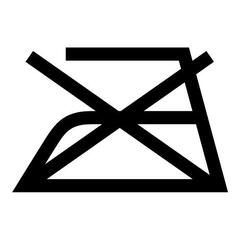Detailed description
Outsole: moulded rubber with conical studs for grip. Long, thin studs at the edge of the sole to stabilise the foot. In the front of the sole, under the 1st metatarsal head, directional PAD for easier changes in direction. / Midsole: flexible EVA for cushioning. / The outsole covers the front of the toes./Insole: flat foam.
Detailed description (continued)
Stiffener: stiff PU for foot support; interior: foam with 3D mesh lining for comfort and breathability/Upper: PU and 3D mesh at the end of the foot for breathability; interior: mesh lining and foam for comfort and breathability/Quarter: embossed PU insert for foot support, Tongue: foam with mesh lining./Insole: flat foam. / flat laces.
Choosing the right size and model
Like with any sports shoes, your hockey shoes need to fit your feet properly. First, make sure there are no pressure points. Next, ensure your foot does not slip around inside the shoe. This is especially important when playing on artificial turf. According to manufacturers, certain models are specially adapted to women. They are designed for a smaller stature and a smaller foot volume.
Choosing the right size and model(cont.)
Some women have a small shoe size and tend to choose kids' shoes. These are not suited to the stature of an adult woman.
Choosing the right size and model(continued 2)
How to know if your shoes fit properly Put on your hockey socks. Plant your foot firmly on the ground. While exerting pressure down on your foot, try to move your foot in all directions in the shoe. It should not be able to move.
Why wear specialised hockey shoes?
Field hockey shoes are designed with two specific features: reinforcements, especially at the front of the foot and the heel, to protect your feet from impacts from the ball and the stick, and a sole suited to field hockey playing surfaces - generally sandy or wet artificial turf - for the traction you need.
Special features of hockey shoes
Field hockey shoes are designed with features specific to the sport:
The outsole (the part of the sole in contact with the ground) is generally made of rubber and has spikes of various shapes and positions. It is harder than a trail shoe. It is adapted to synthetic, sandy, or wet pitches specific to field hockey. It ensures grip on the pitch, which is critical to field hockey.
Special features of hockey shoes (continued)
The tongue, over the instep, is generally made of foam and mesh and serves to protect the foot from splashes of water or dirt.
Safety tips
Hockey should be fun. Don't neglect your safety. Always wear your mouthguard, shin guards and a glove. Use hockey shoes with protective reinforcement and soles designed for your playing surface. Wear a mask and specially designed gloves. During matches and training.
Designer
Founded in 1891 by Allah Dita in Pakistan, just as the sport was emerging, Dita has pioneered numerous innovations that have shaped the modern game. Drawing on its unrivalled expertise, Dita designs products that enable a creative, successful game. Just check out Seve van Ass, Florent van Aubel and Martin Hâner to see what we're talking about!
Information
The information here was provided by the manufacturer or observed by our teams from samples received from the manufacturer.




